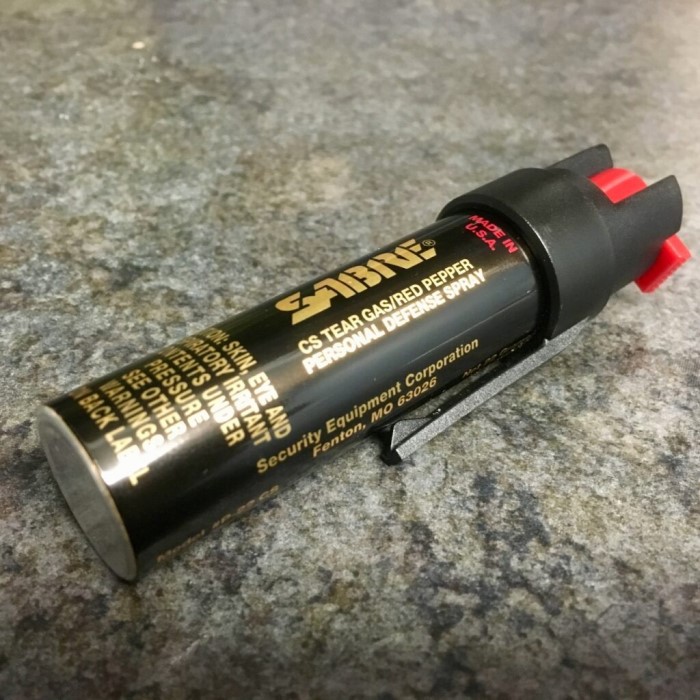Introduction to Pepper Spray and Its Composition
When discussing various self-defense methods, pepper spray is a commonly mentioned tool. However, many people have a burning question related to its usage and safety: can you eat pepper spray? To answer that question, it’s essential first to understand what pepper spray is, its purpose, its ingredients, and what happens when one comes into contact with it. This article provides a comprehensive overview of pepper spray, its health effects, and safety precautions regarding accidental ingestion.

What Is Pepper Spray?
Pepper spray is a non-lethal self-defense weapon that is widely used for personal protection against potential attackers. It is made from capsaicin, which is obtained from hot chili peppers. Capsaicin is the active ingredient that gives peppers their heat, and its concentration in pepper spray is significantly higher than that in regular food-grade chili sauces. Most pepper sprays consist of oleoresin capsicum (the concentrated extract of hot peppers), propellants, and solvents. This combination of ingredients allows for an effective defensive spray to incapacitate an assailant temporarily. However, such potency raises serious concerns about safety, particularly when it comes to accidental ingestion.
Can You Eat Pepper Spray?
Can you eat pepper spray? Now, approaching the core of the issue, the clear answer is no, you cannot eat pepper spray. Although the compound found in hot peppers, capsaicin, is indeed used in various culinary dishes and is generally safe to consume in food. The formulation of pepper spray is vastly different. Pepper spray is designed for self-defense and contains additional chemicals and propellants that render it entirely unsafe for human consumption. These additives are not intended for ingestion and can have severe consequences on health.
Health Effects of Ingesting Pepper Spray
Ingesting pepper spray can lead to immediate and serious health consequences. Here’s a more in-depth look at what one might experience:
Immediate Reactions:
- Upon accidental ingestion of pepper spray, individuals frequently encounter a severe burning sensation that affects their mouth, throat, and stomach.
- The body’s natural defense mechanisms kick in, often triggering gagging and vomiting as a means to expel the harmful irritant from the body.
- These immediate physical reactions can induce feelings of panic and distress. Which may further complicate the situation and lead to heightened anxiety.
Gastrointestinal Distress:
- Once ingested, pepper spray continues its journey through the digestive system, where it can cause intense gastrointestinal discomfort.
- Individuals may experience significant abdominal pain, cramping, and diarrhea as their bodies react to the foreign substance.
- These symptoms can be quite severe and may persist over time, potentially necessitating medical intervention to manage and alleviate the accompanying pain and discomfort.
Long-Term Implications:
- Ingesting larger quantities of pepper spray or prolonged exposure can result in more serious health issues.
- One potential consequence is inflammation of the gastrointestinal tract lining. Which can manifest as chronic pain and may lead to long-term damage to the digestive system.
- Continued irritation can cause scarring or changes in the mucosal barrier. Leading to further complications such as malabsorption or increased susceptibility to infection.
Potential for Complications:
- More significant health complications may arise from ingesting pepper spray, including a heightened risk of developing pancreatitis, an inflammation of the pancreas.
- Pancreatitis can be a serious condition, often requiring hospitalization for intensive treatment and management.
What Happens if You Accidentally Ingest Pepper Spray?
If accidental ingestion of pepper spray occurs, knowing how to respond can be crucial:
- Do not induce vomiting: Although it may seem reasonable to eliminate the substance, inducing vomiting can cause further irritation to the esophagus and mouth.
- Drink lots of water or milk: Consuming water or milk can help to dilute the capsaicin and reduce the burning sensation associated with ingestion. Both can soothe the affected areas, providing temporary relief.
- Seek immediate medical help: If symptoms persist or worsen, such as difficulty breathing or intense abdominal pain, medical attention should be sought immediately. Doctors can offer treatments to alleviate pain and address potential complications effectively.
Is Pepper Spray Edible?
Despite its pepper content, the answer is a resounding no, pepper spray is not edible. While capsaicin is a key ingredient in many culinary dishes, the dangerous composition of pepper spray includes various harmful chemicals, rendering it unsuitable for human consumption. The formulation’s purpose as a self-defense tool leads to additional safety risks when ingested.
Can You Eat Mace?
Similar to pepper spray, mace is also not safe for consumption. Mace often contains tear gas as its active ingredient, and though it may sometimes include capsaicin-based formulations, consumption can lead to serious side effects. It is crucial to remember that these self-defense products are not intended for human consumption and are formulated for external use only.
What Are the Side Effects of Pepper Spray?
The side effects of pepper spray can be serious and disruptive, especially upon ingestion or accidental exposure:
Skin Irritation:
- Burning Sensation: Upon contact with the skin, pepper spray induces an intense burning sensation that can be quite painful. This is due to the active compound, capsaicin, which irritates the nerve endings.
- Redness and Inflammation: The skin may become red and inflamed, indicating a reaction to the irritant. This redness can vary in severity based on individual sensitivity and the concentration of the spray used.
- Swelling: In some cases, prolonged exposure can lead to swelling in the affected area. This may result from the body’s inflammatory response to the irritant.
- Duration of Exposure: The severity of these symptoms is often related to how long the skin is exposed to the spray. Longer contact times can exacerbate the irritation and lead to more pronounced symptoms.
Eye Irritation:
- Severe Eye Injuries: When pepper spray comes into contact with the eyes, it can cause serious injuries, including a severe burning sensation, tearing, and immediate inflammation.
- Temporary Blindness: A common effect is temporary blindness due to the intense pain and tearing.
- Lasting Irritation: Even after the immediate effects subside, there can be lasting irritation. This may manifest as ongoing discomfort and sensitivity to light.
- Corneal Damage: If not treated properly, the exposure may lead to more serious complications, such as corneal abrasions or damage, which can impact vision and require medical intervention.
Respiratory Issues:
- Inhalation Effects: When inhaled, the aerosol particles from pepper spray can irritate the respiratory tract. Provoking immediate reactions such as coughing and choking.
- Respiratory Distress: Individuals may experience significant respiratory distress. Which can manifest as difficulty breathing, wheezing, or a feeling of tightness in the chest.
- Impact on Vulnerable Individuals: Those with pre-existing respiratory conditions. Such as asthma or chronic obstructive pulmonary disease (COPD).
Gastrointestinal Issues:
- Nausea and Vomiting: Symptoms often include nausea and vomiting as the body attempts to rid itself of the irritant. This can be accompanied by abdominal pain.
- Cramping and Diarrhea: Other common symptoms are cramping and diarrhea. Which may occur as the gastrointestinal system becomes inflamed and reacts to the irritant.
- Long-term Issues: In some cases, accidental ingestion may lead to long-term digestive tract issues. Which could necessitate medical attention and potentially cause ongoing discomfort.
Safety Tips When Handling Pepper Spray
Handling pepper spray safely is essential. Here are several safety tips to prevent accidents:
Know the Product:
- Familiarize Yourself: Take the time to learn about the specific brand and model of pepper spray you have. Understanding its design and functionality is crucial for effective use.
- Understand Effects: Research the potential effects of pepper spray on individuals, including its ability to cause temporary blindness, coughing, and disorientation. This knowledge can help you anticipate its impact in real-world situations.
- Proper Usage: Learn the correct way to deploy the pepper spray, including how to aim and spray it effectively in self-defense scenarios.
- Chemical Components: Be aware of the active ingredients in your pepper spray, as different formulations may vary in potency and effectiveness. This includes understanding any additional ingredients that may enhance its effects or cause allergic reactions.
Store Securely:
- Child and Animal Safety: Always ensure that your pepper spray is stored out of reach of children and pets to prevent accidental discharge or misuse.
- Secure Location: Ideally, keep the pepper spray in a locked compartment or on a high shelf, ensuring it is accessible only to authorized users.
- Climate Considerations: Store it in a place where temperature fluctuations are minimal, as extreme temperatures can affect the effectiveness of the spray.
Avoid Indoor Use:
- Minimize Risk: Always opt to use pepper spray outdoors to significantly reduce the chances of inhalation, both for yourself and for others nearby.
- Protect Others: Indoor deployment can easily expose innocent bystanders to the effects of the spray, which can lead to unintended harm.
Be Cautious with Wind Conditions:
- Assess Wind Direction: Before using pepper spray, take note of the wind direction to ensure that you’re not unintentionally spraying yourself or bystanders.
- Choose Calm Conditions: Locate sheltered areas if possible, avoiding open spaces where drafts could carry the spray back towards you.
Education and Training:
- Knowledge Acquisition: Commit to ongoing education about self-defense tools, including pepper spray, to enhance your understanding of various situations you may encounter.
- Practice Training: Engage in training sessions that simulate real-life scenarios, enabling you to practice deploying the spray effectively and safely.
- Prevent Accidental Misuse: Familiarity with the product and practice can significantly reduce the risk of accidental discharges or misuse in a high-stress situation.
Conclusion: Why You Should Never Eat Pepper Spray
In conclusion, addressing the question can you eat pepper spray is vital for public safety awareness. The clear consensus is that pepper spray, while effective for self-defense, is entirely unsuitable for human consumption. Accidental ingestion poses severe health risks and can lead to a range of physical complications, including gastrointestinal distress and inflammation. As responsible individuals, it’s crucial to treat pepper spray with the utmost respect and care. Always prioritize public safety and personal health by staying informed about the dangers associated with potentially harmful products like pepper spray.





